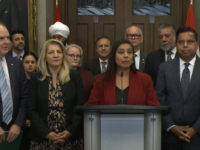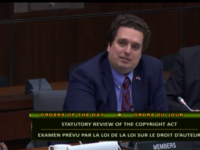Last month, the government seemingly reversed course on its lawful access plans to grant law enforcement powers to demand warrantless access to personal information from any provider of a service in Canada. Buried in Bill C-2, a border measures bill, the lawful access provisions were the most expansive in Canadian history covering everyone from telecom providers to physicians to hotels. The bill sparked widespread opposition amid concerns that it was inconsistent with multiple Supreme Court of Canada decisions and the Charter of Rights and Freedoms. Yet it now appears that the reversal was short lived. Yesterday, Public Safety Minister Gary Anandasangree, Transport Minister Steve McKinnon, Secretary of State for Combatting Crime MP Ruby Sahota and a group of Liberal MPs held a press conference to urge swift passage of lawful access.
Post Tagged with: "security"
Canadian Government to Ban TikTok (the Company not the App)
The Canadian government has just announced the conclusion of its national security review of TikTok and arrived at a curious conclusion: it plans to ban the company from operating in Canada but the app will remain available here. I wrote earlier this year about the need for better laws to counter the risks associated with TikTok, rather than banning the app altogether. That post came in response to U.S. legislation that proposed to ban the app, but which is now in doubt given the results of yesterday’s U.S. Presidential election. There may well be good reasons to ban the app if it poses security and privacy risks that differ from those of other platforms, but banning the company rather than the app may actually make matters worse since the risks associated with the app will remain but the ability to hold the company accountable will be weakened.
The Law Bytes Podcast, Episode 192: Kate Robertson on the Privacy, Expression and Affordability Risks in Bill C-26
Bill C-26, alternately described as a cyber-security, critical infrastructure or telecom bill, remains largely below the radar screen despite its serious implications for privacy, expression, and affordable network access. The bill is currently being studied at a House of Commons committee that seems more interested in partisan political gamesmanship rather than substantive hearings. Kate Robertson is lawyer and senior research associate at the Citizen Lab in the Munk School at the University of Toronto who is a former criminal counsel and the co-author of one of the most extensive Bill C-26 committee submissions. She appeared last week at the committee studying the bill, but with limited opportunity to engage on the issues, she joins the Law Bytes podcast to talk about the bill, the concerns it raises, and some of the potential fixes.
The Law Bytes Podcast, Episode 159: Fenwick McKelvey on the Rapid Spread of Government TikTok Bans
TikTok may be enormously popular, but according to the growing number of government, there are concerns regarding links between the app and the Chinese government. That has led to a rapid spread bans of the TikTok app on government devices not only at the federal level, but at provincial and municipal governments and even at universities for university-owned devices. But is TikTok unique in this regard? How to reconcile the government’s insistence that TikTok contribute to Cancon in Bill C-11 with it banning the app due to security risks? Are the privacy concerns more about TikTok or the government’s inaction on privacy reform?
Fenwick McKelvey is an Associate Professor in Information and Communication Technology Policy in the Department of Communication Studies at Concordia University and the co-director of the Applied AI Institute. He returns to the Law Bytes podcast to talk about the TikTok bans, the state of Canadian policy in addressing the concerns, and why we may be heading for more geo-political battles over digital policy.
The LawBytes Podcast, Episode 32: Reflections from the Open Source Member of Parliament – A Conversation with Ex-MP David Graham
David Graham was not your typical Member of Parliament. A Liberal MP from the Quebec riding of Laurentides-Labelle, Graham brought a background in open source issues to Parliament Hill. Over his four years as an MP, Graham was seemingly everywhere when it came to digital policy. Whether in the House of Commons talking net neutrality, the Industry committee copyright review or the Ethics committee work on privacy, Graham emerged as the rare MP equally at home in the technology and policy worlds. Graham’s bid for re-election fell short, but this week he joins the Lawbytes podcast to reflect on his experience in Ottawa with thoughts on copyright, privacy, technology policy, and the use of digital tools for advocacy purposes.










